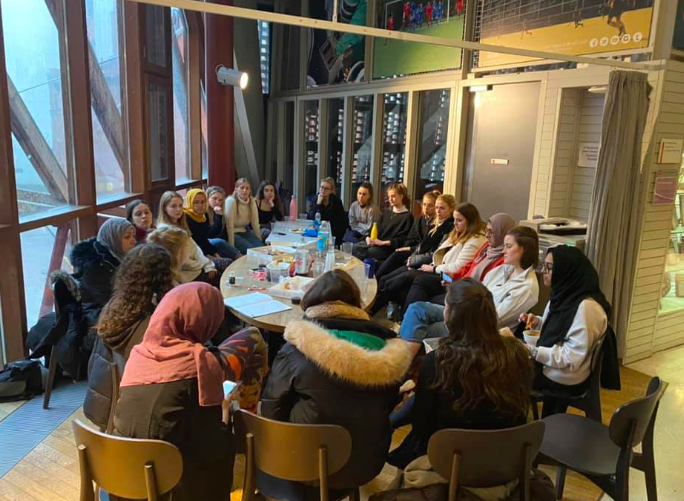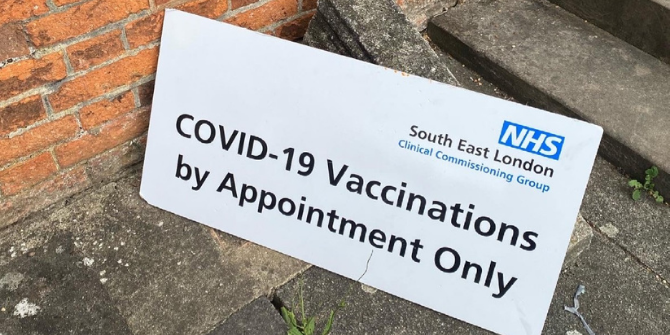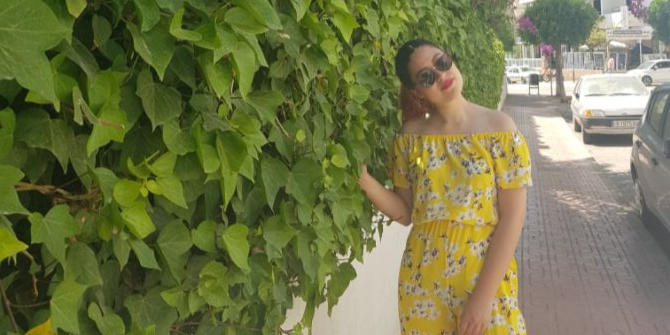Emily Otvos (BSc in International Relations and History, 2020) and Aminah Nihal (BSc in International Relations 2021) co-founded the LSE Women’s Interfaith Group and have been leading on several volunteering efforts during this academic year. In this blog they discuss their motivations and their successes.
The LSE Women’s Interfaith Group is a social action charity initiative seeking to bring together female LSE students from all faiths and none. We run fortnightly sessions in which we primarily make sandwiches for homeless people, which are then distributed at the Islamic Society’s Soup Kitchen on campus. We also host speakers, collaborate with other LSE societies and run targeted events such as a toiletries collection with the Athletics Union to make care packages. We have worked closely with Food Cycle who provide almost half of the food we use to make sandwiches, thus simultaneously promoting the key issue of food waste and reducing our costs – ensuring our project is as environmentally sustainable as possible. We also receive food donations from the LSE café, which have allowed us to serve some hot food at the Soup Kitchen.
We founded the initiative after receiving seed funding from Nisa-Nashim, a Muslim and Jewish women’s partnership, in March 2019, and created the society at the start of this academic year. A problem with a number of interfaith initiatives that we had experienced was their temporary, superficial and sometimes awkward nature, and thus we wanted to create a society that allowed female students of faith to meet on a regular basis to discuss issues that were important to them, whilst simultaneously partaking in volunteering. Charity is a core tenet of all religions and is something that binds us as a humanity, and taking part in the activity of food preparation removes some of that initial discomfort, whilst also attracting people that wouldn’t have necessarily considered going to an interfaith event before. We believe that volunteering at its best is when it’s done subconsciously – so through fostering a safe all female space to discuss important issues and meet new people, the food we make is almost a byproduct of the sessions rather than the sole focus.
We saw a need to address multiple issues such as rising religious based hate crime and discrimination rates as well as exponential homelessness, thus endeavoring to create an opportunity to combat these problems through working towards common goals. These have included sessions targeting hate crime on public transport, LSE’s mental health services with Freedom of Mind and raising awareness of sexual assault with the Hands Off LSE campaign alongside joining with the LSE Intersectional Feminist Society, LSE Women Leaders of Tomorrow and LSE Women in Politics societies. We have also hosted external speakers including a cultural advisor to Sadiq Khan and a representative from Near Neighbours.
As a partner society to the Islamic Society (ISOC), WIG has worked closely alongside the outreach arm of ISOC under GIVE. Feeding over 150 homeless individuals each month, our societies have worked together to further CSR strategies of well-known restaurants such as Franco Manco and Simit Sarayi in our local community as a means to tackle food waste and foster a community built on principles of giving back. These soup kitchens have not only provided us with a means to provide short-term answers to the homelessness crisis, but we have also worked closely with the Student Union to provide answers and brainstorm ideas on the long-term impact we as LSE students can have in dismantling the structures which prevent the progression of our society.
We also wanted to create an event model that was active but also incredibly simple so it can be replicated easily. Through significant fundraising, we have been able to sponsor
Women’s Interfaith Group events at four other universities around the country – Cambridge, Oxford, Newcastle and Sussex. WIG seeks to not only make a difference in our local community but build lasting connections and bridges between women of faith in an increasingly hostile and polarised environment. We want to make a statement as a group of empowered women of faith that we can come together to change our community for the better, dispelling stereotypes, barriers and prejudices. Our initiative has been very successful in such a short amount of time and we can’t wait to see how it will evolve and continue for years to come.
If this blog has inspired you to volunteer, check out one of our other 200+ ongoing opportunities or book a one-to-one with David Coles, the Volunteer Centre Manager if you have more questions. If you are short on time, then take a look at the one-off opportunities that will return for Michaelmas Term 2020, organised by the LSE Volunteer Centre. And why not follow us on Facebook, Twitter, and Instagram to stay up-to-date with our events and opportunities and read our blog for more volunteering tips and stories.







1 Comments